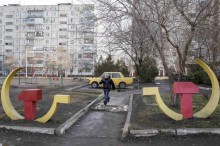At the end of last year, Minister of Education and Science of Ukraine Serhii Kvit cancelled decree No. 642 “On organization of studying humanitarian disciplines by students’ free choice” of July 9, 2009, which established a list of mandatory humanitarian disciplines and their volume in universities. Therefore, universities received an opportunity to independently determine the content of their curricula, which is one of the signs of university autonomy. Universities should have been able to determine which minor subjects should become mandatory, should it be done for all majors or only selectively, etc. Somehow, History of Ukraine, Philosophy, and a number of other Ukraine-related subjects ended up on the list of optional subjects. Society opposed such innovations immediately and resolutely. People appealed to the present situation as well: the war in Donbas is our unlearned history lesson, and without learning it, we cannot win this hybrid war. The public debated and wrote official letters and appeals. The Day also joined the process by publishing a number of articles on the necessity of the mass history education and bringing the problem in the wider public space. And here is our joint result.
THEY WILL NOT ONLY REMAIN, BUT THE NUMBER OF HOURS WILL BE INCREASED
“We understand the necessity of continuing the teaching of philosophy, history, and Ukraine-related subjects in higher education. The number of hours will be increased,” emphasized vice prime minister of Ukraine and minister of culture Viacheslav Kyrylenko these days at a briefing at the Government Building. According to him, the newly adopted Law of Ukraine “On Higher Education” triggered an active discussion of the threat of disappearance of philosophical and Ukraine-related disciplines from the mandatory bloc in the society.
“Communities of philosophers and historians expressed the most concern. The debate became public, that is why a decision to hold a meeting was taken in the government in order to jointly work out the ways of solving the issue,” Kyrylenko said. “The collisions that arose as a result of the adoption of the Law ‘On Higher Education’ and cancellation of the list of mandatory subjects will be resolved through development and publication of the new decree by the Ministry of Education, which will contain all necessary recommendations to autonomous universities on preserving mandatory disciplines of the given bloc.”
“EVERYTHING THAT HAPPENED ON THE BANKS OF THE DNIPRO IS BEING ARTIFICIALLY DRAGGED TO THE BANKS OF THE VOLGA”
The fact that these disciplines will be returned to the list of mandatory ones is the victory of the civic society, thinks Doctor of History, professor, director of the history of Ukraine of the 1920s-1930s department at the Institute of History of Ukraine at the National Academy of Sciences of Ukraine Stanislav Kulchytsky.
“You see, civic society is slowly waking up, and it can already put pressure on those who have the power. This is a very good sign that we can achieve goals without Molotov’s cocktails and burnt tyres. It is when the intellectuals address mass media with criticism of what has been done and provide absolutely convincing proof that everyone should know history,” says Kulchytsky in a conversation with The Day. “Of course, professional historians speak out in the first place, but people understand that we need to move away from Russia, and not only from contemporary Russia. We have to think our history over. Whose prince was Yaroslav the Wise? Was he of Rus’? Yes, he was. But he was not Russian. Russia appropriated not only territories, but the historical past of the Ukrainian nation back in the 17th century. Everyone should know this, and once it becomes known, our mentality, historical memory, and our borders must be protected from those infringing upon it all, on the people, on the territory, on memory. A monument to Volodymyr the Great will be erected at Sparrow Hills in Moscow, which are also known as Lenin Hills. There is also a Russian city Yaroslavl, named after Prince Yaroslav. And now Putin makes submarines with such names as Prince Oleh, Prince Rurik, etc. Everything that happened on the banks of the Dnipro, is being artificially dragged to the banks of the Volga.”
According to Kulchytsky, during the past decade Ukrainian school textbooks have been “a battlefield between Ukraine and Russia.” “I consider former education minister Dmytro Tabachnyk as part of the Russian party. Serhii Kvit is quite an intelligent person, he thought through what they wanted to do in haste,” said the historian and emphasized that the time to correct mistakes has come.
“We must admit our mistake: we lost Donbas long before it was attacked by Russian hirelings. We lost the spirit of the people who live in Donbas, because they are not fully Ukrainians and not fully Russians. They have formed their own mentality and historic memory over there, on the borderline. We should have taken it all into consideration, but we did not. Why? Because there was no civil society. Now it appeared, so the mistakes must be corrected. Unfortunately, very little time is left. A war must be waged now, there is no time for writing textbooks. However, we have written several fundamental works on the history of Crimea literally last year at the Institute of Ukrainian history. And now brochures and books on the history of Donbas will appear one after another. The events in the east united Ukrainians as a political nation for the first time.”
And this is one of the first civilized victories of the new society.







